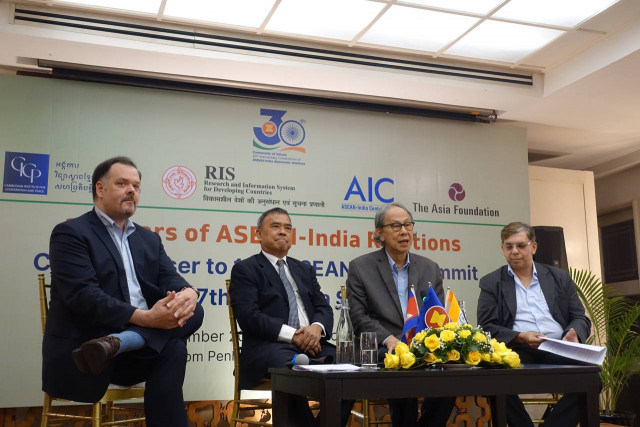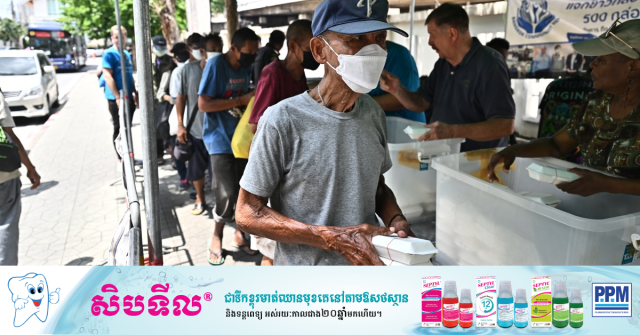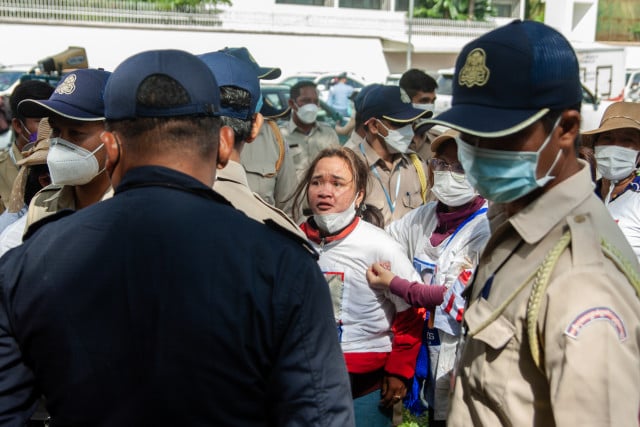Conference Marked Thirty Years of ASEAN-India Relations and Discussed Strengthened Cooperation

- By Meng Seavmey
- November 7, 2022 9:12 PM
PHNOM PENH – Cambodian Institute of Cooperation and Peace (CICP) hosted a conference on Nov. 4 to mark the 30th anniversary of ASEAN-India relations, aiming to highlight both sides’ achievements over the years.
The discussion focused on several facets of the ASEAN-India relations, ranging from trade to investment and value chains, as well as climate, smart agriculture, public health cooperation, and the way forward for ASEAN and India.
The talks were hosted by the Ministry of Foreign Affairs Secretary of State Kung Phoak, senior officers of the Indian Ministry of External Affairs, Cambodian and Indian scholars, and members of think tanks in Southeast Asia and India.
Both sides’ representatives and role players agreed that expanding areas of cooperation was the right way forward, as well as taking the relationship between ASEAN and India to the next level and a new height in terms of trading, cooperation, addressing and responding to challenges, and strengthening their relations and connectivity, as India is one of the major partners for ASEAN.
The online conference was co-organized by The Asia Foundation (TAF), the Research and Information System for Developing Countries (RIS), and the ASEAN-India Centre at RIS (AIC).
India began its diplomatic ties with ASEAN in 1992 as the association’s Sectoral Dialogue Partner. There are now 30 platforms for dialogues, including the ASEAN-India Annual Summit, and 7 Minister-level dialogues. For the last three decades, India’s engagement with ASEAN has been in line with its “Look East Policy” – which then became the “Act East Policy” – an Indian trade and diplomatic strategy towards South East Asia, to counter the influence of China in the region.
In 2012, the ASEAN-India Commemorative Summit was held to mark two decades of cooperation and adaptation of the ASEAN-India Vision Statement, and in 2018 the 25th Anniversary of ASEAN-India Dialogue Relations was marked on the Delhi Declaration.
Despite the COVID-19 pandemic, in 2021, there were a series of meetings between ASEAN and India to further elevate the association and India relationship. Such meetings included the India-ASEAN Summit and the ASEAN-India Foreign Ministers Meeting, which were held virtually. It has also been decided that 2022 would be designated as the year of friendship, to coincide with India’s 75 years of independence.
During Cambodia’s chairmanship of the regional block, the annual ASEAN-India Foreign Ministers Meeting, which was held in August, focused on both sides’ cooperation in the post-pandemic era, including enhancing cooperation in areas of smart agriculture, healthcare, new and renewable energy, digital inclusivity, and fintech.
Economically speaking, trade between the two regions reached $125 billion for the first ten months of 2022 and could reach up to $200 billion by the end of the year, while India’s exports to ASEAN states represent 10 percent of its bilateral trade, according to Prabir De, a professor at the RIS and a coordinator of the AIC. Such volumes of trade were made possible with the implementation of the ASEAN-India Free Trade Agreement in 2010.
Due to the pandemic, India and ASEAN member states have been working closely with each other to cope with the spread of COVID-19 and strengthened the healthcare system by supplying vaccines, medical equipment, and human resources from developing to least developed countries. Through the tough time, both sides have cooperated to respond to the challenges and expand the preparedness capacity for other possible future pandemics.
Him Raksmey, a research fellow at CICP, proposed three recommendations to improve the healthcare system. He said the ASEAN and India should continue to instill a shared vision of public health and forge on a consensus on what both want to achieve. The two entities should further nurture a favorable environment for joint ventures in pharmaceutical and other public health industries, particularly in the private sectors.
He finally recommended ASEAN and India consider establishing a network of public health communities, public health universities, research institutes, think tanks, hospitals, pharmaceutical companies, and private sectors.















